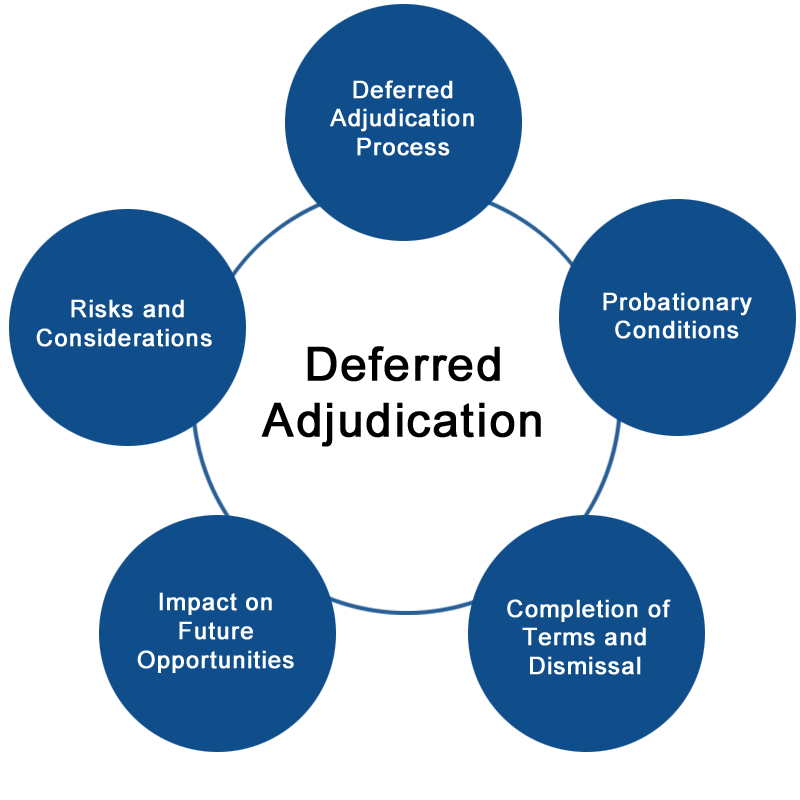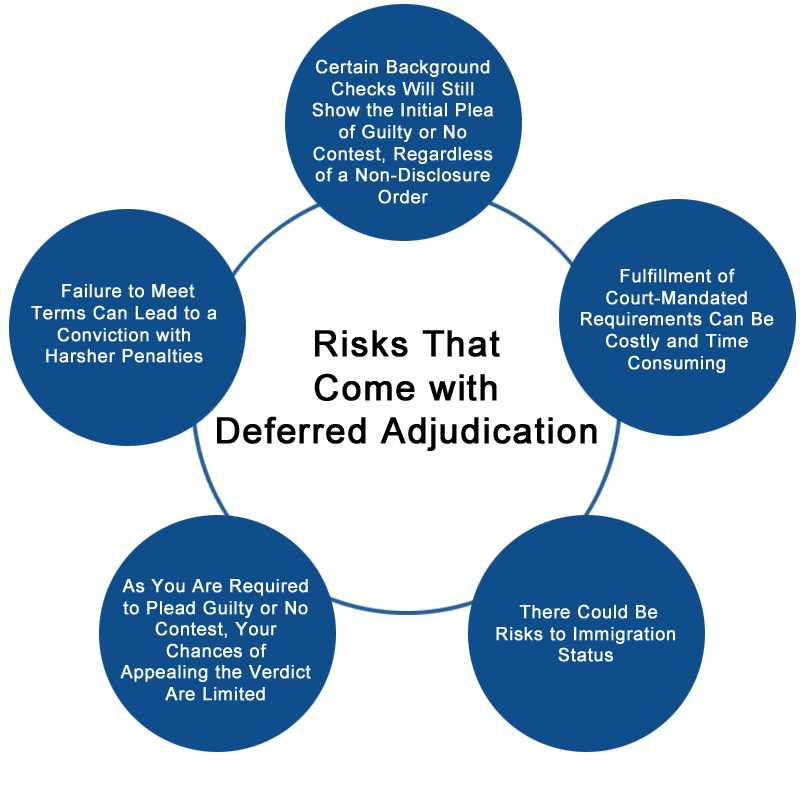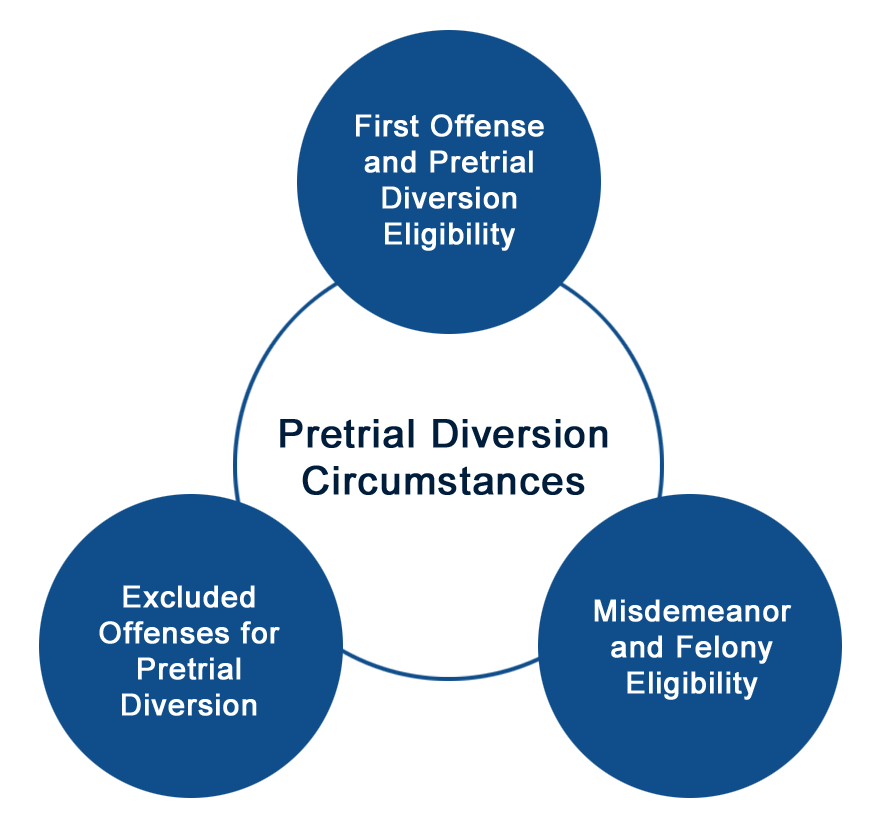 Deferred Adjudication in Texas
Deferred Adjudication in Texas
If you were recently arrested for your first DWI, in the state of Texas you may be offered what is known as “deferred adjudication” as part of a plea deal. During a deferred adjudication, you would first enter a plea of no contest or guilty to your charge, which would be accepted by the judge but not immediately acted upon. Instead of issuing a judgement at that time, the judge would defer conviction until a later date, instead placing you on probation.
During this probation period, you would be required to fulfill certain conditions set by the court. These conditions will vary based on the particulars of your case, but can include fines, mandatory community service hours, and/or attendance at DWI education classes. In addition, there may be further requirements requested by the court.
Fulfilling all these requirements is known as “Completion of Terms.” Whatever terms the court sets, meeting them could allow you to have your DWI charge dismissed and potentially stricken from your record. This could be advantageous to you down the road, as a conviction on your record can have a dramatic impact on your ability to secure employment, housing, education and more.
Designed to help first-time offenders rehabilitate and move beyond their transgression with a clear criminal record, deferred adjudication can be highly beneficial for those facing their first DWI. That said, if you are seeking a deferred adjudication for your first DWI, there are risks that you should be aware of.
 Deferred Adjudication: The Pros and Cons
Deferred Adjudication: The Pros and Cons
As mentioned, when you have successfully completed the terms of your deferred adjudication, you can have your charges dismissed without a conviction. This not only allows you a better chance of securing employment, housing and higher education opportunities, but it provides an avenue for learning from your mistakes without long-term legal penalties. It also lets you bypass the hardship and uncertainty of a full criminal trial.
But what are the drawbacks? While one of the benefits of deferred adjudication is keeping a conviction from appearing on your permanent criminal record, it does not erase the incident completely. Until your probation period is completed, it will remain on your record. And some probation periods can be lengthy – in fact, felony probation can run as long as 10 years.
And even after you complete the probation period, your permanent record will reflect that you were arrested for DWI, but avoided jail time through deferred adjudication. It is possible to shield this from public viewing through a non-disclosure order, which prohibits police, law enforcement, corrections authorities and the court from disclosing the deferred adjudication. It also protects you from being compelled to reveal your deferred adjudication on job applications and so on.
There are further risks that come with deferred adjudication:
- • Certain background checks will still show the initial plea of guilty or no contest, regardless of a non-disclosure order.
- • Fulfillment of court-mandated requirements can be costly and time consuming.
- • There could be risks to immigration status.
- • As you are required to plead guilty or no contest, your chances of appealing the verdict are limited.
- • Failure to meet terms can lead to a conviction with harsher penalties.
Your attorney can help you determine whether this strategy is right for you or whether there might be alternatives in your case.
 Pretrial Diversion
Pretrial Diversion
As an alternative to both deferred adjudication and a criminal conviction on your permanent record, pretrial diversion offers a way to avoid jail time and penalties without pleading guilty or no contest. However, this alternative is only available for those facing a specific set of circumstances:
- • This must be your first offense, and this must be your first experience with pretrial diversion.
- • The charge in question must be a misdemeanor (however, certainly felonies may also be eligible).
- • The offense cannot be a matter of national security or foreign affairs, or a crime related to gang activity, domestic crimes or crimes of a sexual nature.
Otherwise, you can pursue pretrial diversion as a path to potentially having your case dismissed and your criminal record kept clean, skipping a lengthy trial and associated penalties.
Preparation Creates Success
Deferred adjudication and pretrial diversion are just two of the multitude of strategies available to you to bypass criminal charges for first-offense DWI. A skilled attorney can walk you through all of your options, learning the particulars of your case and determining whether either of these strategies would be beneficial. And even if these aren’t the best options for your unique circumstances, your attorney’s knowledge of your case can allow them to question all the evidence against you, from the initial traffic stop to the results of breath and blood tests.
It’s just a question of knowing everything about your case. Whether taking your case to trial or seeking alternatives, preparation is key to the best outcomes. The side that understands your case and is better prepared has a greater chance of winning. And that is what we do best. Schedule a confidential consultation with a member of our legal staff today and take back control of your legal destiny.
Call 1 (866) 875-5996 or Schedule a Free Case Evaluation Online
